The 49 Essential Questions to Ask When Buying a Business
December 22, 2023
December 22, 2023

Wouldn’t you like to boost the chances that a business you purchase is a lucrative cash cow instead of a money pit?
You want to make a good decision, and there are essential questions to ask when buying a business.
Budding business owners often buy a business without asking the right questions to become successful. You want to ask questions that reveal all the red flags and minefields that could cause the business to blow up in your face six months later.
We’ll discuss questions to ask yourself before and after approaching businesses and questions you need answered about any business’s history, finances, and the management of the business venture.
There’s a lot at stake here. So, sit down and come up with an exhaustive list of questions to ask that’ll elicit the exact information you need. Equally important, write down the answers you receive so you have this knowledge when you most need it.

There are so many questions to ask before buying a business involved in any industry. You should probably have a checklist with you to verify that you have successfully asked all the due diligence questions to ask when buying a business. Download our buying a business checklist.
You should have a reason for buying the business. Are you trying to acquire technology, customer lists, and employees or achieve other goals?
This question should impact how you evaluate every decision. If an answer doesn’t align with this goal, you may need to ask clarifying questions.
Do a sanity check before you go and buy a business. You don’t want to buy a business that’s a mess if you can save money by, for example, buying the equipment you want and starting your own business yourself.

You’ll need to establish whether you can afford to buy the business. You’ll have three options as a purchasing business owner:
Analyze your current cash flow and figure out how much money you’ll be able to spend on the business. Make sure you have enough money for the down payment. It’s usually 10 to 20% of the purchase price.
Then, come up with a price tag and stick to it.
Pro Tip: Eager to buy a business but need more help? Bookmark our comprehensive How to Buy a Business With No Money guide.
If you already own a business and are planning a merger, know that a business purchase can be disruptive to business operations. It takes management time away from both small business owners, and key employees from the newly acquired business will take time to acclimate to the new company culture.

Similarly, if you already own a business and want to grow by buying another, as a new owner, you’ll need to consider how the management team and employees of each organization will work together. Cultural differences can create real problems when you buy businesses.
A business owner may need consultants when buying small businesses. You’ll probably need:
Before buying a company, make sure that it is the best business to achieve your goals.
Keep reading for more questions to ask when buying a business.
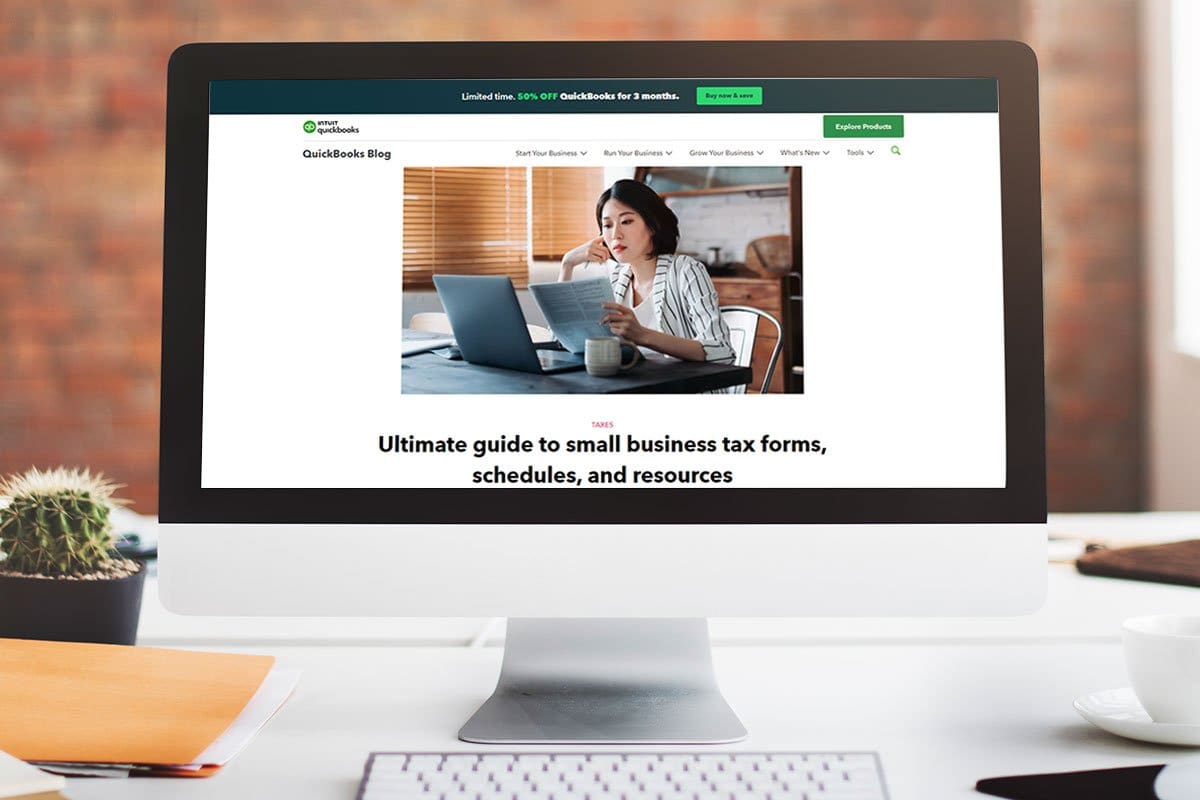
You’ll want to know about the history of the business you’ll be buying. An honest business owner will talk about the mistakes the owner made during the business’s history. Hopefully, they’ll share valuable pointers on how to avoid making the same mistakes during day-to-day operations.
That’s why you should ask these questions about business history.
You might learn about recent problems the owner is having. The beauty of this question is that it’s blunt and might tell you exactly what you need to know.
However, you might get an answer like “I want to retire” or “It’s time to see the world.” Although these answers can be truthful, business owners frequently use them to cover up red flags when buying a business.
That’s why it’s up to you to dig deeper to uncover why the business owner is looking for an exit strategy. Sometimes, you’ll just have to trust your intuition.

When a current owner has operated a business for a long time, you’ll probably be buying a company with a loyal customer base and brand recognition.
Past longevity is an excellent indicator of business success. So, if the proprietor has been in business for three decades, you’re probably purchasing a valuable asset that’ll continue to be a cash cow for you, too.
This question helps establish the mindset of the current owner. It might also show differences in motivations that could be impacted if a company grows.
Keep reading for financial questions to ask when buying a business.
You’ll want hard financial data, right? Here are some questions to ask to get the numbers you need:
This will tell you how much money you’ll be able to pull in with the existing business. But probably even more important is the next question…
This business question will help you establish how much working capital the company has.
Asking this question and the next one together can be a good way to establish how well the business owner manages its financial statements.
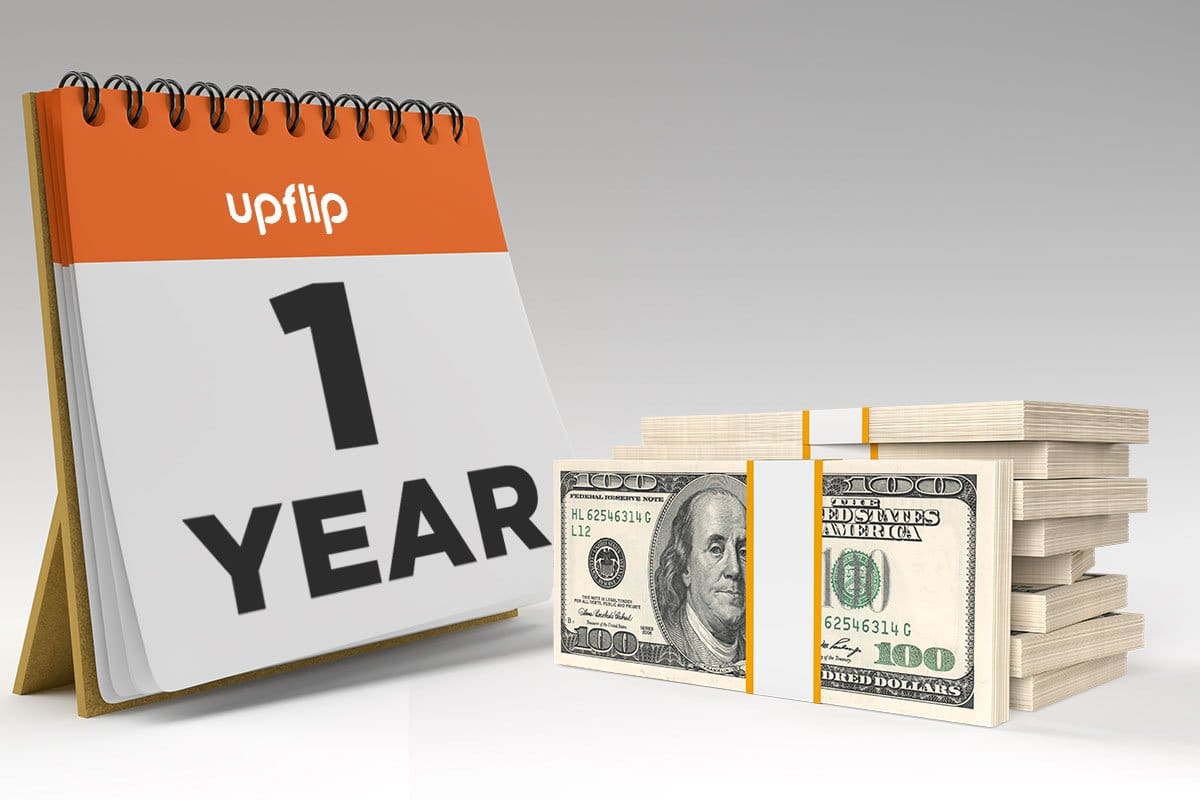
Look closely at these figures. High gross revenues and low profit margins indicate high overhead—which is either a red flag or an opportunity.
While this may seem the same as the last question, you want to ask questions differently to see if you get consistent answers.
When you are buying a business, you could also be picking up undisclosed outstanding debt. This could significantly jack up what you’ll pay. That’s why it’s so important to ask about legal obligations!
Any legal obligations and liabilities you will not assume need to be paid off before closing. Don’t let the owner say he’ll pay them off later because the legal doctrine of “successor liability” means you become liable after business purchasing.
Pro Tip: A better way to handle liabilities is to subtract them from the offer you make when purchasing the business from the previous owner.
Once you start seriously considering buying a business, you’ll want to get the financial statements verified by an independent auditor.
This individual will scour the books with a proverbial fine-tooth comb to confirm that what the owner told you is the truth.
And if your auditor does their job right, they’ll leave no stone unturned.

Ask questions that’ll help you get to a more precise determination as to how much the small business is worth. This information will help you pay a reasonable price for the company so you’re not swindled. If you overpay, this could leave you in dire financial straits, which could ultimately lead to the failure of your business.
Questions to ask about price include:
Try to get at least a ballpark figure for how much the owner wants. This will let you know if proceeding to the negotiation stage will be worth it. The price should be no more than three times the annual profits.
Again, this is the kind of question that’ll give you a little peek into the mind of the owner. Listen carefully, and then decide whether you think their answers are trustworthy.

This includes both tangible (things like delivery trucks, cooking equipment) and intangible (goodwill generated, social media accounts) assets of the existing business. You want a comprehensive inventory of every single thing you’ll be getting in the sale.
An independent appraisal will give you the best idea of how much you should pay. So, if one hasn’t been performed, you should think about having it done before you buy. This way, you’ll know the value of the business you’re thinking about acquiring.
You’ll want to make sure that you or your financial professional can look at the business’s financial statements for the last three to five years. These include tax returns, income statements, balance sheets, cash flow statements, and any current contracts or leases. If you’re going to have an independent auditor look at them, make sure you hire a reputable one.
While it would be nice to trust a business’s own financial analysis, it’s best to be sure the statements have been vetted by accounting professionals. If the owner refuses, he may have something to hide. In that case, it would be best to just walk away from the deal.
There might be a lot of intangible things that go into the owner’s personal valuation of their existing business that the hard financial data won’t reveal. These include things like the reputation of the company, customer lists, and employee expertise.

The following questions will help clarify your financing options:
This will indicate whether the owner believes in you and the small business. Seller financing usually covers 10% to 25% of the purchase price of a company. It can be used to add to a down payment.
If you can get your seller to put some money on the line by financing the sale, it might serve as an indication of the seller’s confidence in the future of the small business. They know more about the business than you do, and if they’re not willing to gamble on its success, why should you?
The current owner might know sources that you don’t know about. It doesn’t hurt to ask!
Most small business loan lenders loans insist that sellers take a standby position for about two years. This means the seller won’t receive any payments during that time. If your seller won’t finance the entire transaction, find out if he’d be willing to take a standby position so that the rest of the deal can be funded.

Devise a series of carefully written questions to ask that’ll help you figure out how the small business generates revenue and how it’s run on a daily basis. The better you understand all this, the more confidently you can operate your new business. Businesses with a steady revenue stream are the safest bet.
Ask questions like:
You’ll want to know how you’ll get paid—whether that’s a one-time payment, through a subscription, or some other means. Some businesses have unique ways of generating revenue that might not be familiar to you.
If the small business you’re thinking about acquiring has one, ask to take a look at it. This list could be a goldmine for you, making it one more reason to buy the small business.
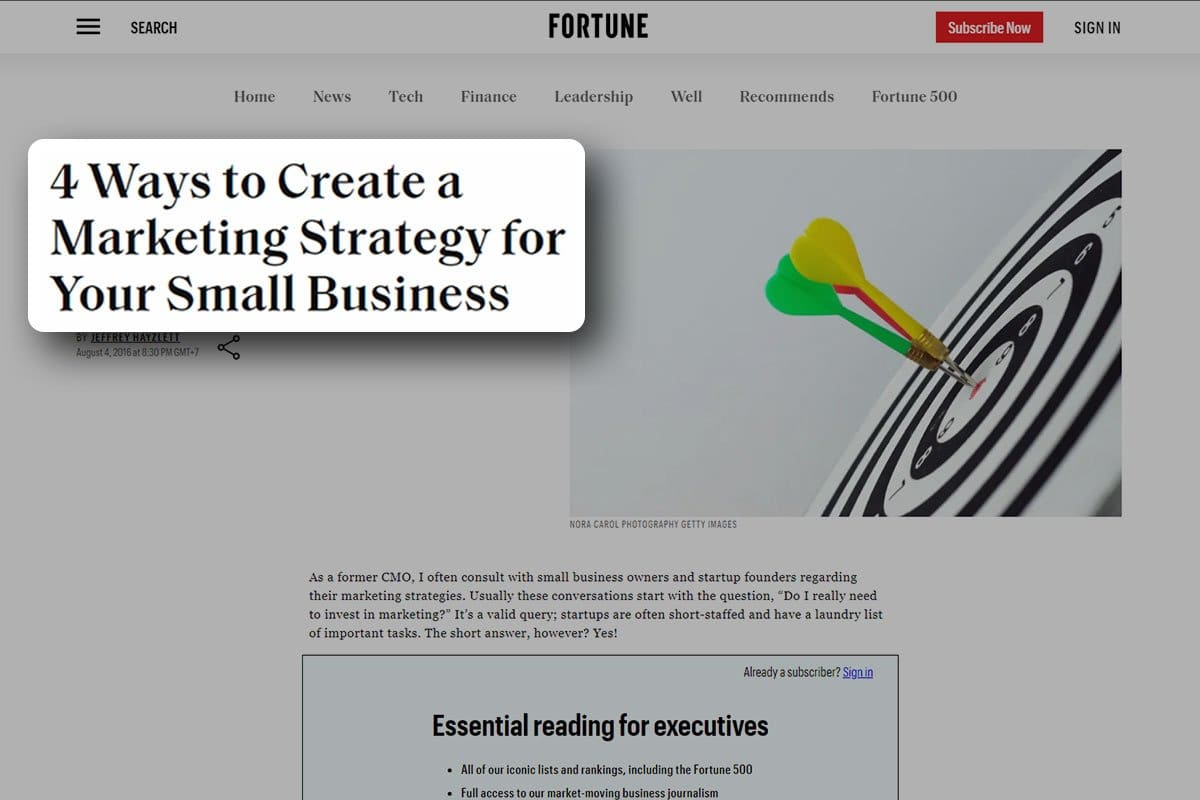
Ask the owner what kind of marketing he’s done in the past—and what worked and what didn’t. This way, you’ll get valuable feedback on the marketing that’ll get the most bang for your buck.
This is an indication of how much of your time your business will eat up. Even the most die-hard entrepreneurs will want to get away once in a while. So, find out how often the current owner was able to get away. You want to know what you’re getting yourself into!
If the owner isn’t getting paid, this is a red flag. You want your venture to generate enough profits that you can draw a salary.

If there’s a time delay between the delivery of merchandise and payment, there might be a supply chain problem. You might want to take a closer look at that before you agree to buy the business.
Buying an existing small business isn’t like making other large purchases. No matter how much you know about what you’ll be selling, there’s probably going to be at least a bit of a learning curve. That’s why it would be great if the owner could stay on for six to 12 months to help you learn the ropes.
Many businesses fail because they don’t meticulously study their competition. You need to know your competitors inside and out so you can effectively compete against them after buying a business.

If the answer is “a lot,” you might think twice about buying this business. That’s because this is something that’ll be hard to replicate, even with hard work.
You need to get your information from secondary sources—not just the owner. This way, you can make sure it’s as accurate and truthful as possible.
This question will help the owner formulate in his mind precisely what he’s done over the years to make his business successful. The answer might result in valuable information you can replicate so that you’re successful, too.

You’ll want to make sure you comply with the law. Also find out how many of the current owner’s licenses and permits will transfer over to you.
If legal matters are hanging over the business’s head, this is definitely a red flag. Issues like that can quickly drain you of your financial resources.
If they are, ask which memberships have been the most beneficial for them, and don’t hesitate to ask for introductions.

Also, put yourself in the hot seat and ask yourself some probing questions, like:
Purchasing a business because you’re bored isn’t a good reason. Get a hobby instead. Running a business can be tedious, and it definitely is hard work.
For better or for worse, being an entrepreneur is going to affect your relationship with your spouse. They will be going along for the ride, whether they want to or not. Have a frank discussion to make sure they’ll be able to put up with you working long days.

This is one of the most important questions to ask when buying into a business because it will ultimately tell you whether the asking price is worth paying. The more you can help the company grow, the more valuable it will be when buying small business operations.
Take a good look at your professional repertoire and make sure you have the skills you need to make the business you’re thinking about buying a resounding success.
For example, if you’re buying a restaurant, it’s a darn good idea to have some experience actually working in one beforehand.
Take a look at all the financial documents with your certified financial professional. These are things like the tax returns for three years, balance sheets, and cash flow statements.
Then, decide whether the business is fiscally healthy enough to make purchasing it a sound idea.

To get this information, visit local county offices to see which commercial properties recently had a change in ownership. There are also online resources that can help you find this information.
There might be some circumstances under which an all-cash deal makes sense. However, consider the following question, too…
Few buyers can afford an all-cash deal. Even if you could, incurring that level of risk might not be for the best.
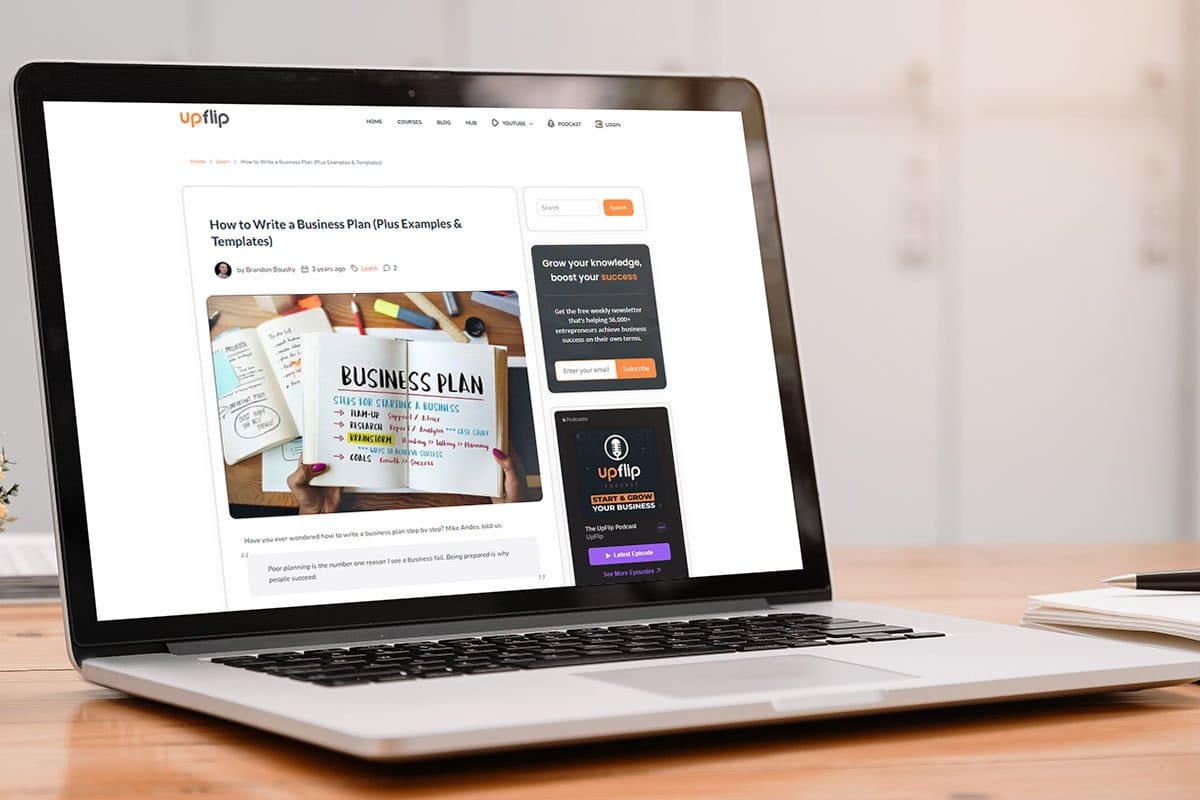
A business plan shows that you’re serious about your business. It’ll also reveal how feasible it is. These are two things potential lenders are going to want to know.
Try to figure out which ones will be indispensable assets to the business and try to sweet-talk them into staying. It’s also a good idea to meet with the employees once it looks like the sale’s going to happen. Make time to answer any of their questions regarding your future plans for the business.
Download our free business buying checklist if you haven’t already.

The questions to ask when buying an existing business are part of the due diligence process that will be conducted as the purchase unfolds.
The process of buying a business includes:
Check out our blog about buying businesses for more information.
If you’ve had a lifelong dream of buying a business, asking the right questions can make all the difference when buying a new business venture. The best way to know what questions to ask when buying a business is to come prepared with a list, which we provided for you.
Don’t let either the owner or yourself off the hook.
You’re buying a business that will be a significant investment of time and money. Asking the right questions will help you to get a business for a fair price, prepare you for the difficulties of ownership, and ensure your long-term success.
So, before you buy, download your free list of questions. You don’t have to limit yourself to the questions we’ve prepared. Modify the list as you go!
Which of these questions are most beneficial for getting the information you need to make a decision? Let us know in the comments!
Brandon Boushy
Y’all ready to have some fun? It’s important to have fun with what you do, and running a company is no exception. Have you ever considered choosing a funny business name?
I have. A bunch of friends and I decided to start a crypto project, and the business name is Bawls Onu. It’s about having fun, creating awareness for men's health, and being brave enough to pursue your dreams.
This is the first funny business name I have used, and everyone’s been surprised by how well it’s worked. Just to give you an idea, the brand’s personality has helped it stay in the top 10 trending crypto for most of January 2024, has had around $10M in trading volume, and has a market cap ranging from $500K to $4 million.
[su_note note_color="#dbeafc"] Most of this is attributable to two things: a funny business name and a good team. So let’s talk about how to choose fun and funny business name ideas. Whether you want something that’s tongue-in-cheek or just good, clean fun, you can click on any of the links below to jump to the section that interests you.
Fun names for a business can be used in every industry. You can create fun business names, project names, website names, event names, and product names. The whole point is to make the naming process enjoyable and increase the likelihood of people remembering your business name.
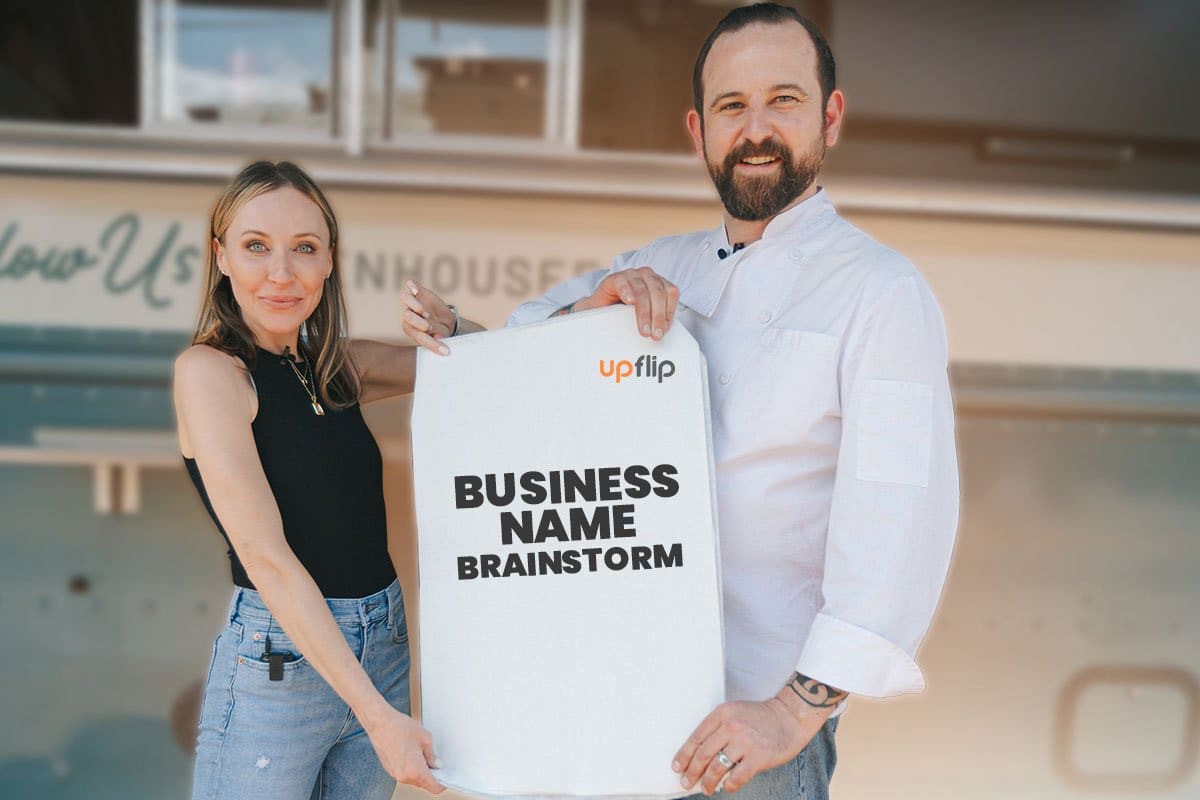
You might want to consider some of these fun business name ideas:
Pro Tip: Funny company names span apparel, restaurants, music, and other industries. When you find a funny name, you’ll want to check search engines, social media, and the U.S. Patent and Trademark Office (USPTO) to make sure the fun name you want to use isn’t already taken.
You might also want a funny name for a project you work on in your business. For instance, we named our NFT collection Project Bojangles, which we arrived at after narrowing down a list of fun company names. Consider some of these funny names perfect for projects:
Publications need names, too. While you might go with something professional like The New York Times, it’s way more fun to go with something like The Daily Sqwak. Consider some of these fun and funny newspaper names as well:
Pro Tip: Most newspapers have gone online to adjust to the times. Make sure you learn digital marketing best practices like search engine optimization (SEO) if you are creating a new publication.
A funny business name might be the same as your website domain, or you might have a completely different name for your website. Consider some of these:
Pro Tip: I find it a bit ironic that one of the most well-known places to buy a web domain has a funny business name. Look no further than GoDaddy to secure the domains for your funny business name ideas.

Girls just wanna have fun. And the rule applies when they’re looking for and booking at a salon, too. These funny company names are full of puns, plays on words, and other silly naming conventions that are perfect for barbershops, spas, and salons:
Pro Tip: Funny business names use wordplay to help people remember a business name. For instance, Hair Today, Gone Tomorrow jokes about the hair being gone once you cut it, while The Salon Formerly Known as Hair is a reference to Prince (or the Artist Formerly Known as Prince).
Make a lasting impression with event names that are just as fun as the name for your business. Many companies in the music business world use catchy business names to attract their target audience to their events, and you can do the same. Check out these examples of sarcastic, fun, and funny ideas perfect for the event management industry:
Pro Tip: Some of these humorous name ideas might not be the best. Most of the time, you want to avoid negative connotations when choosing a name for your business or event. Know your audience and customers, and keep it on the up and up when you need to!
When your brand registers, there’s a good chance you’ll need an LLC. Businesses can have some fun with wordplay to create a memorable LLC name. Consider some of the following:
Pro Tip: Note that every funny name example above ends in LLC. That’s because businesses that are formed as an LLC have to have it in the business name. You can register other names for customer-facing interactions. Those are called Doing Business As names (DBA for short).

Creative name ideas for a travel agency can help potential customers remember your company. Consider some of these examples to add humor to your company's advertising.
Pro Tip: While a funny company name might fit your brand’s personality, the government won’t accept any funny business when it comes to registering your company. Whatever business type you’re naming, make sure you follow all laws and regulations.
Pressure washing businesses can leverage funny business names that include words like suds and squeaky or incorporate iconic idioms about getting clean.
Pro Tip: Check out Brown’s Pressure Washing franchise if you want to take the guesswork out of naming a pressure washing company.

A cleaning company is a great place for funny company names that make a lasting impression. Let your creativity run wild and beat out stiff competition with these funny company names:
Pro Tip: Queen Bee Cleaning Services is actually taken. We partnered with the business owner who came up with this memorable business name to help people learn how to start a cleaning business. Check out our interview with him below.
You can have funny business names for painting companies, too. There’s clever wordplay with paint words like:
Pro Tip: If you can’t find a funny business name for your painting company, go check out some of the painters that offer franchises for sale. You could benefit big time from a business name that’s already built a brand.
Funny business names might catch the eye of small business owners who need a vending machine. Consider some of these funny business names:
Pro Tip: Once you’ve come up with some funny business names, go check out our free vending machine training course taught by Adam Hill or watch the video below.
Funny business names come from the creative use of words to arrive at a unique name that conveys humor.
Here are some tips for coming up with a good funny business name idea:
After you’ve come up with creative and memorable business names, you’ll want to:
This process will help you solidify your perfect name and help your company stand out against the competition.
Choosing your funny name is just the first step in building your brand. You’ll need to create social media accounts, a website, and marketing to attract customers and make a lasting impression.
What are some funny names you’ve seen for small businesses? Does their advertising and branding come off as humorous, too?
| Sneaker Industry Statistics | |||
| Used Shoes | Shoes | Combined | |
| Revenue (in billions) | $14.18 | $61.10 | $75.28 |
| Profit | 8.20% | 3.50% | 4.39% |
| Profit in Billions | $1.16 | $2.14 | $3.30 |
| Number of Employees | 277,000 | 320,000 | 597,000 |
| Number of Businesses | 71,162 | 12,848 | 84,010 |
| Employees Per Business | 3.892 | 24.907 | 7.106 |
| Revenue per Employee | $51,183.39 | $190,937.50 | $126,093.47 |
| Expected Solo Entrepreneur Revenue | $51,183.39 | $190,937.50 | $126,093.47 |
| Expected Average Revenue | $199,232.74 | $4,755,603.99 | $896,057.61 |
| Expected High Revenue | $941,800,000.00 | $6,377,900,000.00 | $6,377,900,000.00 |
| Largest Company | Savers | Footlocker | Footlocker |
| Source (IBIS World is Pay Walled) | IBIS Industry Link 1 | IBIS Industry Link 2 | |
 You’d be surprised how little money you need to become a shoe reseller. Tia started reselling shoes and other clothes at thrift stores. She told us:
[su_quote]You only need like $50 to start. I would buy them, mark them up, and sell on eBay. As I grew I opened my own store.[/su_quote]
You can easily start with less than $1,000 if you have your own website and more than 1 pair of shoes to sell, but if you want your own retail store, you’ll need $100K+ normally.
You’d be surprised how little money you need to become a shoe reseller. Tia started reselling shoes and other clothes at thrift stores. She told us:
[su_quote]You only need like $50 to start. I would buy them, mark them up, and sell on eBay. As I grew I opened my own store.[/su_quote]
You can easily start with less than $1,000 if you have your own website and more than 1 pair of shoes to sell, but if you want your own retail store, you’ll need $100K+ normally.
 Flipping shoes can be a profitable side hustle. Tia told us what a day looks like in the sneakers reselling business. Her day consists of five primary tasks while buying and selling sneakers.
Flipping shoes can be a profitable side hustle. Tia told us what a day looks like in the sneakers reselling business. Her day consists of five primary tasks while buying and selling sneakers.
 There are a lot of places you can go to find a new pair of hyped shoes to resell in the sneaker world. You should consider the following locations when looking to start a side hustle reselling shoes:
There are a lot of places you can go to find a new pair of hyped shoes to resell in the sneaker world. You should consider the following locations when looking to start a side hustle reselling shoes:
 You can look at the prices of shoes on online marketplaces like StockX and Goat. Tia recommends checking the shoe price on StockX. Shoes that sell on StockX are always new shoes. If they do not pass their inspection, StockX will send them back to you and return the customer’s money.
This process makes StockX’s price the highest value you should expect to get for a product. You can also check other online marketplaces to get a better range of prices.
You can look at the prices of shoes on online marketplaces like StockX and Goat. Tia recommends checking the shoe price on StockX. Shoes that sell on StockX are always new shoes. If they do not pass their inspection, StockX will send them back to you and return the customer’s money.
This process makes StockX’s price the highest value you should expect to get for a product. You can also check other online marketplaces to get a better range of prices.
 Sneaker reselling requires pictures of the shoes to help people understand the condition. Depending on where you list the sneakers, you’ll find different photography requirements. Here are some common types:
Sneaker reselling requires pictures of the shoes to help people understand the condition. Depending on where you list the sneakers, you’ll find different photography requirements. Here are some common types:
 Shipping is a major part of sneaker reselling. Tia told us that the first thing she does every morning is prepare for shipping the shoes that were sold overnight. The common providers of shipping in the US are FedEx, UPS, and USPS. If you are buying and selling sneakers on platforms like GOAT and StockX, you’ll need to ship them to the platform to be verified.
Now that you know how to resell sneakers, let’s look at how Tia grew Sneak City.
Shipping is a major part of sneaker reselling. Tia told us that the first thing she does every morning is prepare for shipping the shoes that were sold overnight. The common providers of shipping in the US are FedEx, UPS, and USPS. If you are buying and selling sneakers on platforms like GOAT and StockX, you’ll need to ship them to the platform to be verified.
Now that you know how to resell sneakers, let’s look at how Tia grew Sneak City.
 You’ll probably want to have a job when you first start because sneaker reselling is expensive. Retail prices of Nike, Adidas, and other shoes can quickly add up. In fact, sneaker culture has shoes with a resale value of up to $50K at the time of writing.
Most of those shoes are tied to a famous basketball player like Lebron James or Air Jordan. Rappers also have a niche market that often attracts sneaker culture. Check out some of the highest offers for people wondering how to sell shoes online.
You’ll probably want to have a job when you first start because sneaker reselling is expensive. Retail prices of Nike, Adidas, and other shoes can quickly add up. In fact, sneaker culture has shoes with a resale value of up to $50K at the time of writing.
Most of those shoes are tied to a famous basketball player like Lebron James or Air Jordan. Rappers also have a niche market that often attracts sneaker culture. Check out some of the highest offers for people wondering how to sell shoes online.
 For those wondering where to sell shoes, Tia told us:
[su_quote]YouTube videos have been tremendous to sell my shoes.[/su_quote]
Sneak City’s Youtube store has 130K followers, and it helps them sell more sneakers at the resale price. She explained how to resell shoes without it feeling like you are creating special content.
[su_quote]We record a video when people come into our store. That way, we can share interesting transactions that people can learn from.[/su_quote]
They also travel worldwide with custom merch and record videos about how to start reselling sneakers.
For those wondering where to sell shoes, Tia told us:
[su_quote]YouTube videos have been tremendous to sell my shoes.[/su_quote]
Sneak City’s Youtube store has 130K followers, and it helps them sell more sneakers at the resale price. She explained how to resell shoes without it feeling like you are creating special content.
[su_quote]We record a video when people come into our store. That way, we can share interesting transactions that people can learn from.[/su_quote]
They also travel worldwide with custom merch and record videos about how to start reselling sneakers.
 The primary expense to buy and sell sneakers on the resale market is the cost of the pair of shoes. Other expenses you should be aware of include shipping and boxes, which cost approximately $1 per box when you buy the boxes in bulk.
The primary expense to buy and sell sneakers on the resale market is the cost of the pair of shoes. Other expenses you should be aware of include shipping and boxes, which cost approximately $1 per box when you buy the boxes in bulk.
 If you want to resell an Original Air Jordan or other sneaker on GOAT, you’ll need to:
If you want to resell an Original Air Jordan or other sneaker on GOAT, you’ll need to:
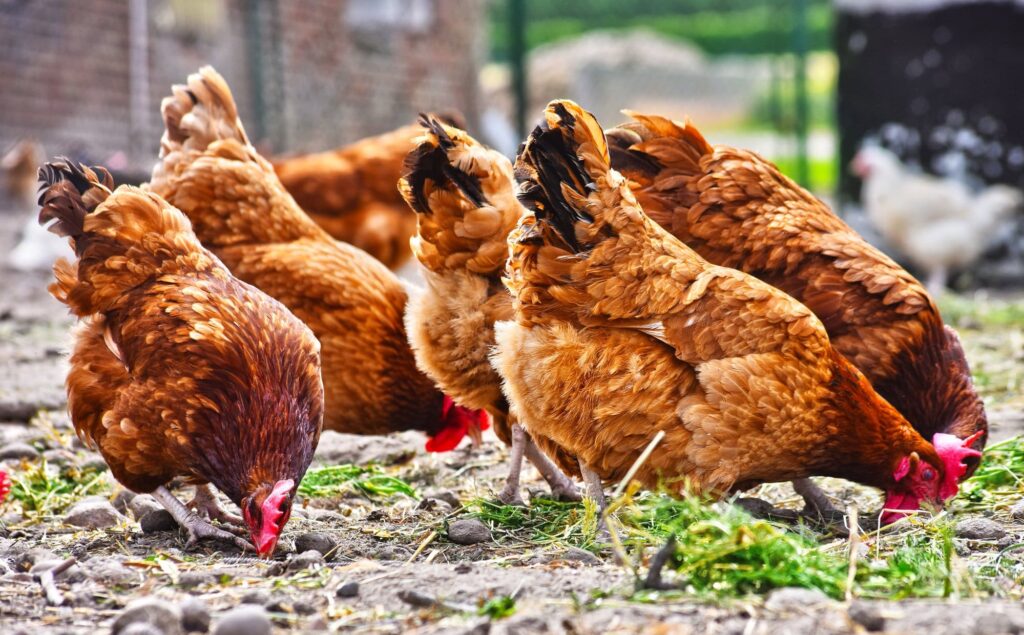 Geoff and John started off with:
Geoff and John started off with:
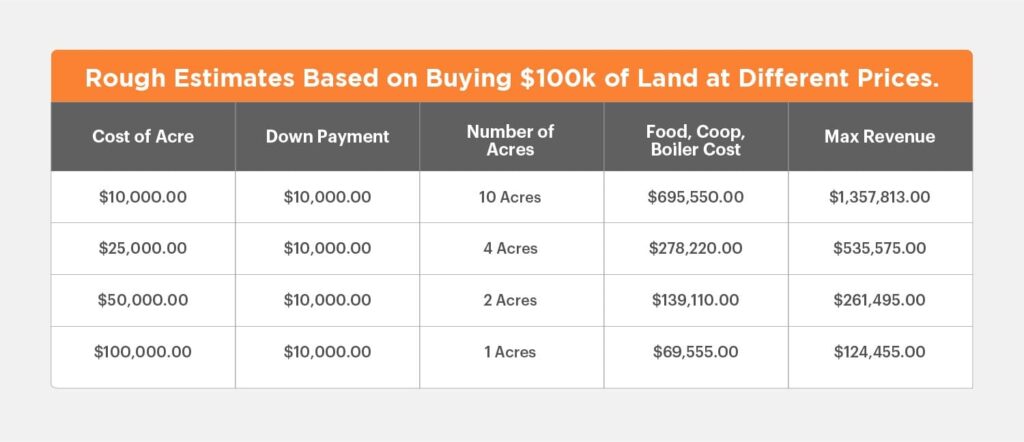 Of course you don’t have to start off with 5,000 chickens. You can start smaller and build your way up. But realistically expect to spend the cost of a down payment and the first two to six months of the mortgage right away. Then, with every 100 chickens expect to spend $1.500.
Of course you don’t have to start off with 5,000 chickens. You can start smaller and build your way up. But realistically expect to spend the cost of a down payment and the first two to six months of the mortgage right away. Then, with every 100 chickens expect to spend $1.500.
 A farmer’s main costs include:
A farmer’s main costs include:
 That means the average company can expect to achieve a maximum of $18,000,000 revenue and up to $867,000 per year. There are a lot of industry participants operating at losses.
Once the meat has been processed, it is sent to the wholesaler.
That means the average company can expect to achieve a maximum of $18,000,000 revenue and up to $867,000 per year. There are a lot of industry participants operating at losses.
Once the meat has been processed, it is sent to the wholesaler.
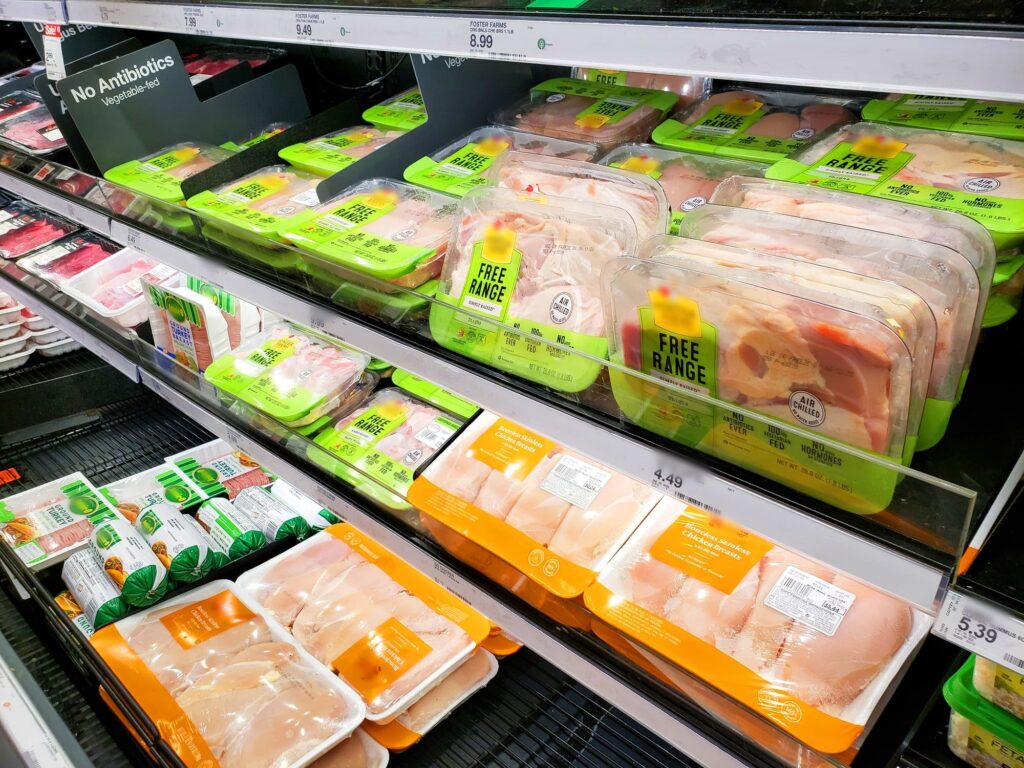 The supermarket industry makes $757 billion in revenue with 21.3% of that attributed to meat, poultry, cheese, and eggs. The purchase of food items accounts for almost 70%. They also average 1.8% profit, but Publix manages to hit a 27.6% profit margin.
The supermarket industry makes $757 billion in revenue with 21.3% of that attributed to meat, poultry, cheese, and eggs. The purchase of food items accounts for almost 70%. They also average 1.8% profit, but Publix manages to hit a 27.6% profit margin.
 Were you raised on a chicken farm?
If you weren’t, I bet you’ll be surprised by the number of chicken breeds available. Fortunately, Chicken Breeds List has an extensive knowledge-base about chickens. It’s basically a one-stop-shop about poultry farming for beginners, with over 31 different breeds ranked based on:
Were you raised on a chicken farm?
If you weren’t, I bet you’ll be surprised by the number of chicken breeds available. Fortunately, Chicken Breeds List has an extensive knowledge-base about chickens. It’s basically a one-stop-shop about poultry farming for beginners, with over 31 different breeds ranked based on:
 Where are you going to raise chickens?
Well, that depends on how many you have. Raising chickens can be a space-consuming venture. The poultry farm business can consume three to ten square feet per chicken meaning you can fit about 33 chickens in a 10 x 10 space.
That means an acre can hold between 4k and 14k chickens, but that doesn’t leave room for much else. That would also be a massive chicken house.
Chickens also do best in 70° to 75° weather, and they can have heat strokes when temperatures get above 90°. Geoff told us:
[su_quote]They've gotta have water. They'll die pretty quick if they don't. Especially in the heat.[/su_quote]
You also want to create a farm where the cost of land plus transporting poultry products is balanced to minimize costs.
Where are you going to raise chickens?
Well, that depends on how many you have. Raising chickens can be a space-consuming venture. The poultry farm business can consume three to ten square feet per chicken meaning you can fit about 33 chickens in a 10 x 10 space.
That means an acre can hold between 4k and 14k chickens, but that doesn’t leave room for much else. That would also be a massive chicken house.
Chickens also do best in 70° to 75° weather, and they can have heat strokes when temperatures get above 90°. Geoff told us:
[su_quote]They've gotta have water. They'll die pretty quick if they don't. Especially in the heat.[/su_quote]
You also want to create a farm where the cost of land plus transporting poultry products is balanced to minimize costs.
 Marion Acres uses what they call a Chicken Tractor with a Gravity Water Delivery System for their broiler chickens. It’s an 8-foot by 8-foot enclosure made from:
Marion Acres uses what they call a Chicken Tractor with a Gravity Water Delivery System for their broiler chickens. It’s an 8-foot by 8-foot enclosure made from:
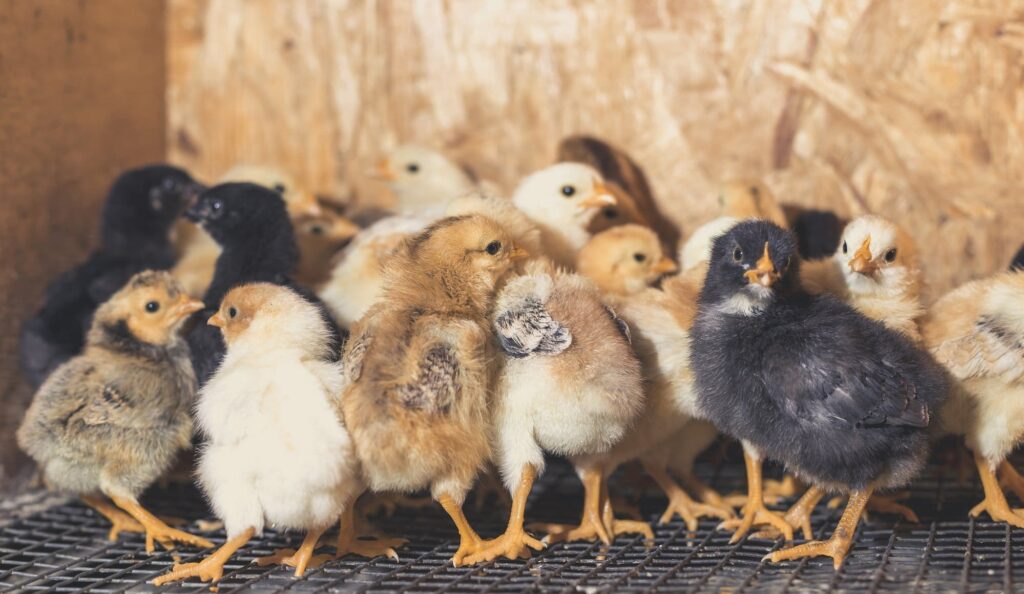 It’s time to buy some quality chicks from a reputable breeder. You can buy locally or online, but be careful when buying online. There are two ways to get new chickens and it sounds like a joke. You get to choose between the chicken or the egg.
Geoff told us:
[su_quote]You definitely wanna buy day-old chicks. Leave the hatching of the eggs to the hatchery.[/su_quote]
Based on my research, it seems that eggs and chickens sell for about the same price, which means you are better off with the chicks. If you decide to expand your business to incubate your own eggs later, you can potentially increase your profit. You’ll need to learn poultry science first, though.
Some breeders are more honest than others, so make sure they have a guarantee. You might also ask if they have an American Poultry Association flock certification.
Some of the ones consistently mentioned include:
It’s time to buy some quality chicks from a reputable breeder. You can buy locally or online, but be careful when buying online. There are two ways to get new chickens and it sounds like a joke. You get to choose between the chicken or the egg.
Geoff told us:
[su_quote]You definitely wanna buy day-old chicks. Leave the hatching of the eggs to the hatchery.[/su_quote]
Based on my research, it seems that eggs and chickens sell for about the same price, which means you are better off with the chicks. If you decide to expand your business to incubate your own eggs later, you can potentially increase your profit. You’ll need to learn poultry science first, though.
Some breeders are more honest than others, so make sure they have a guarantee. You might also ask if they have an American Poultry Association flock certification.
Some of the ones consistently mentioned include:
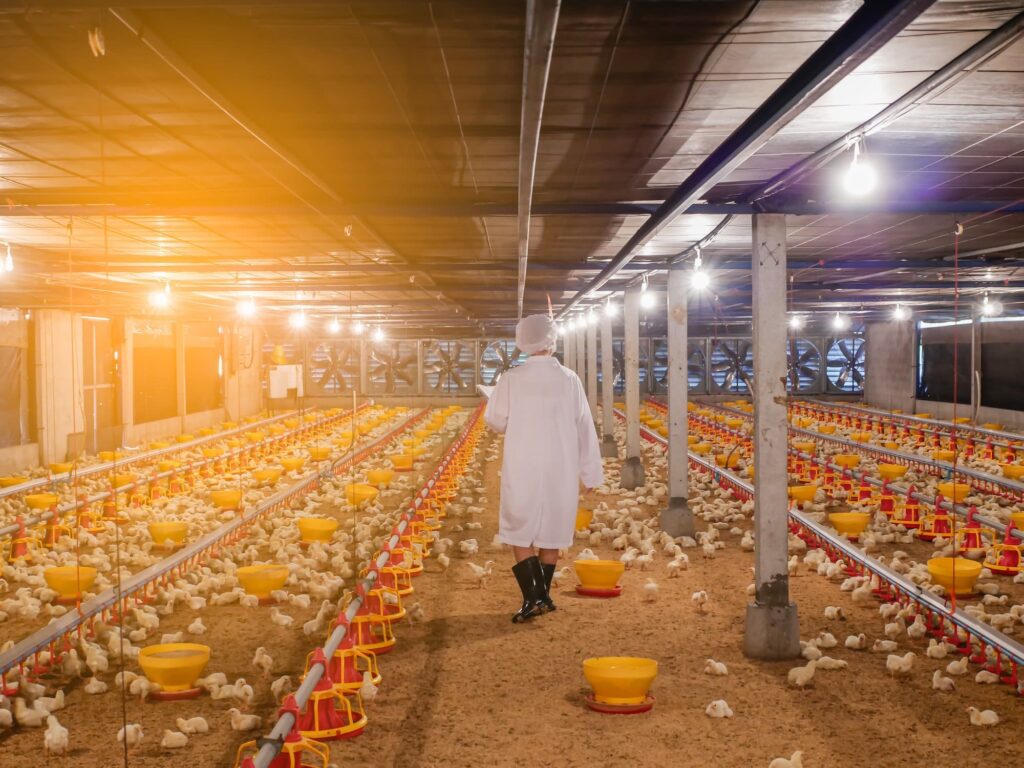 Poultry farming is a delicate business. You have to:
Poultry farming is a delicate business. You have to:
 There are several ways for a poultry farm business to sell their chickens and eggs. The business can sell its products to:
There are several ways for a poultry farm business to sell their chickens and eggs. The business can sell its products to:
 In addition to the basic equipment and chicken care, you’ll need to have your systems in place for standard business operations like:
[su_note note_color="#dbeafc"]
In addition to the basic equipment and chicken care, you’ll need to have your systems in place for standard business operations like:
[su_note note_color="#dbeafc"]

I really admire how you writer
Buying businesses can be very risky, you just don't know what the future holds. These questions are a great way to evaluate a business and plan for the future ;) Thanks
 Inbox
Inbox 
Learn from business failures and successes in 5 min or less. The stories, frameworks, and tactics that will make you a 10x better founder.
 Join our 45,000+ entrepreneurs
Join our 45,000+ entrepreneurs